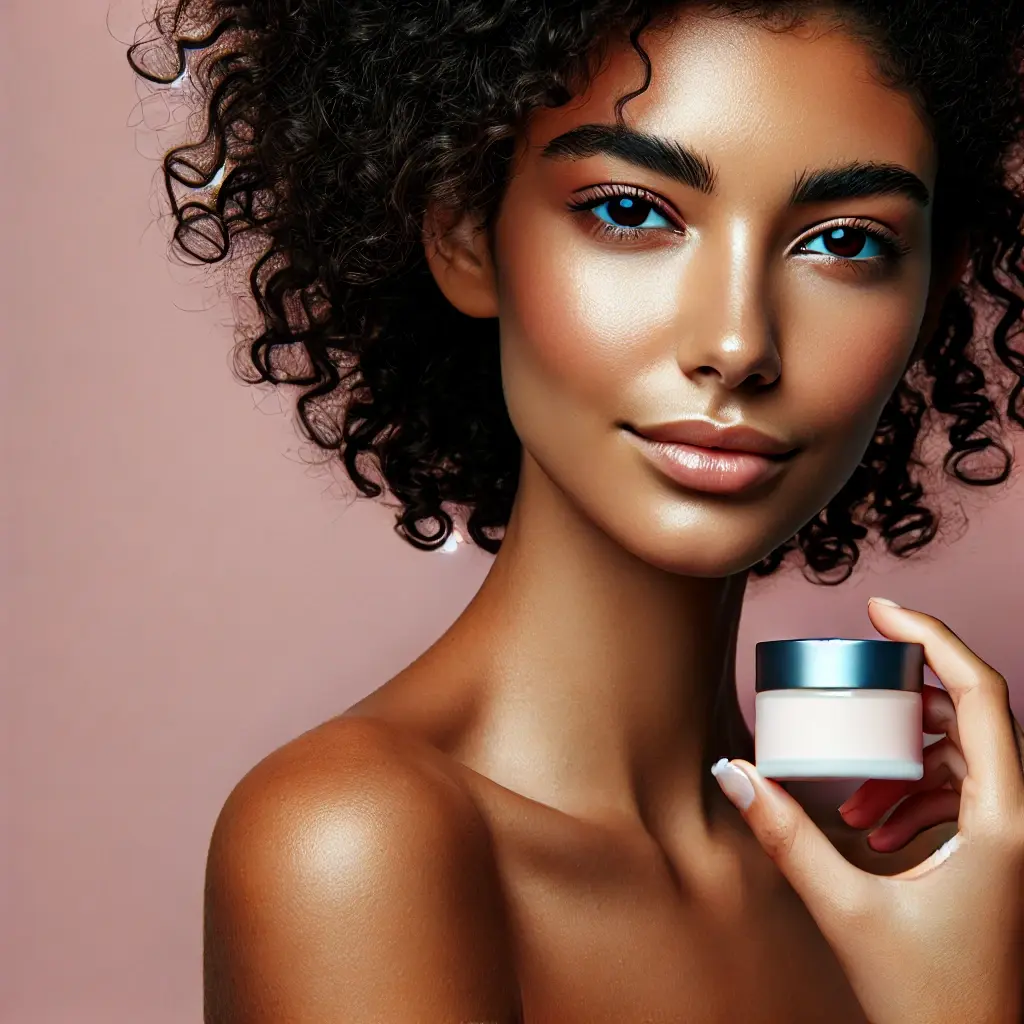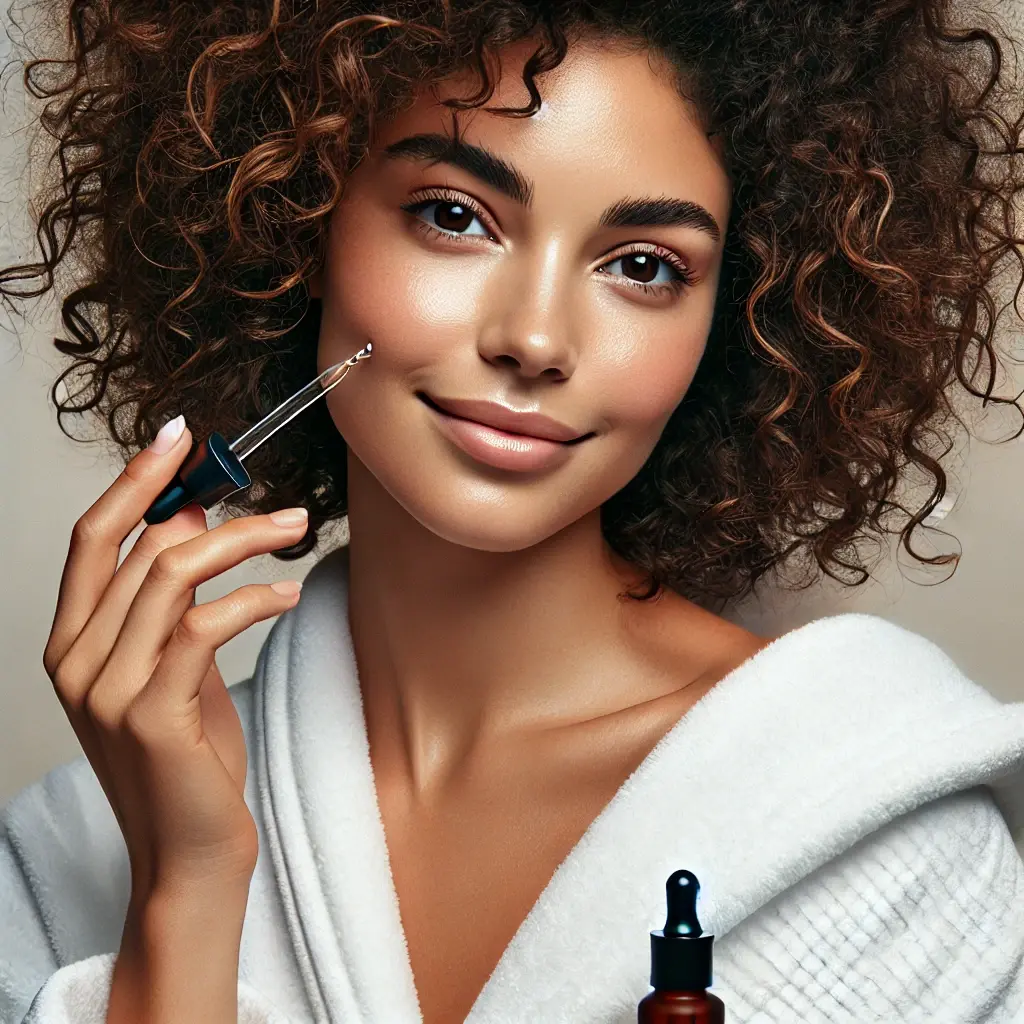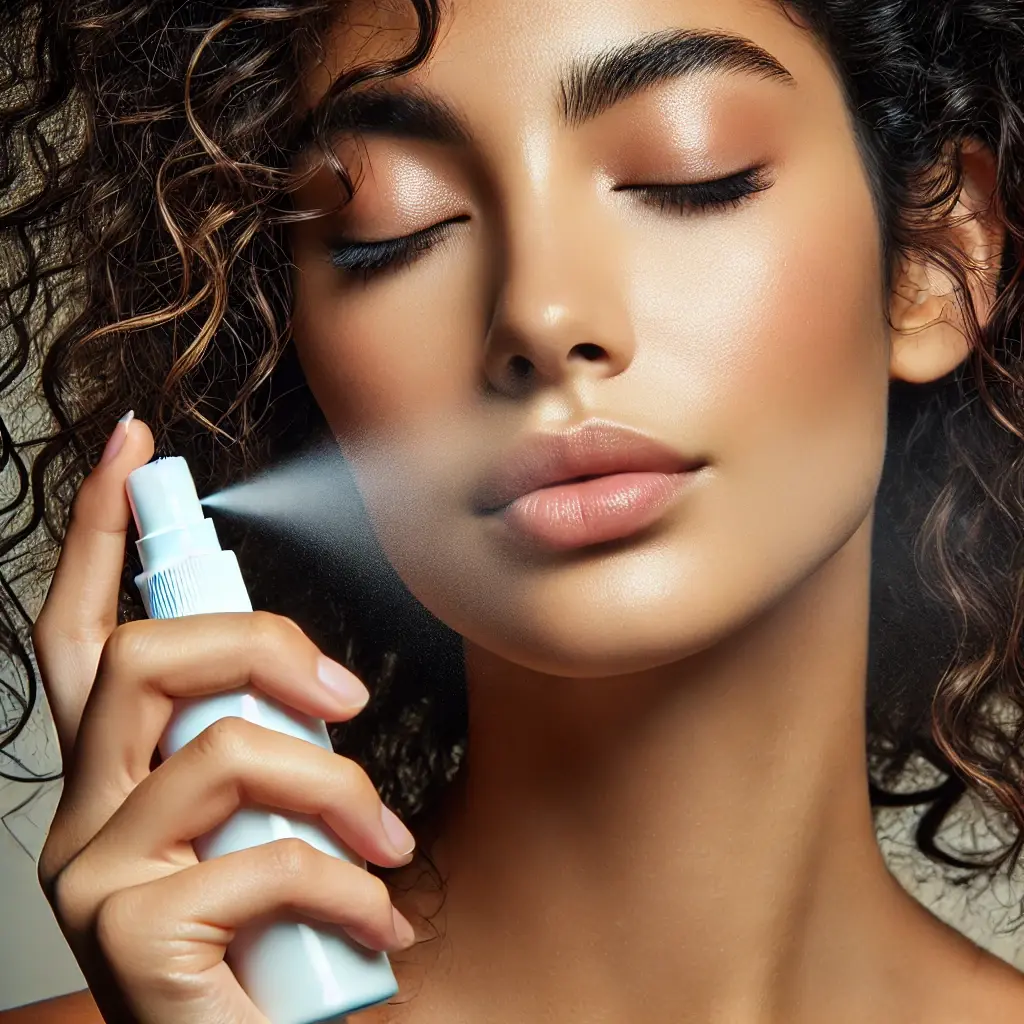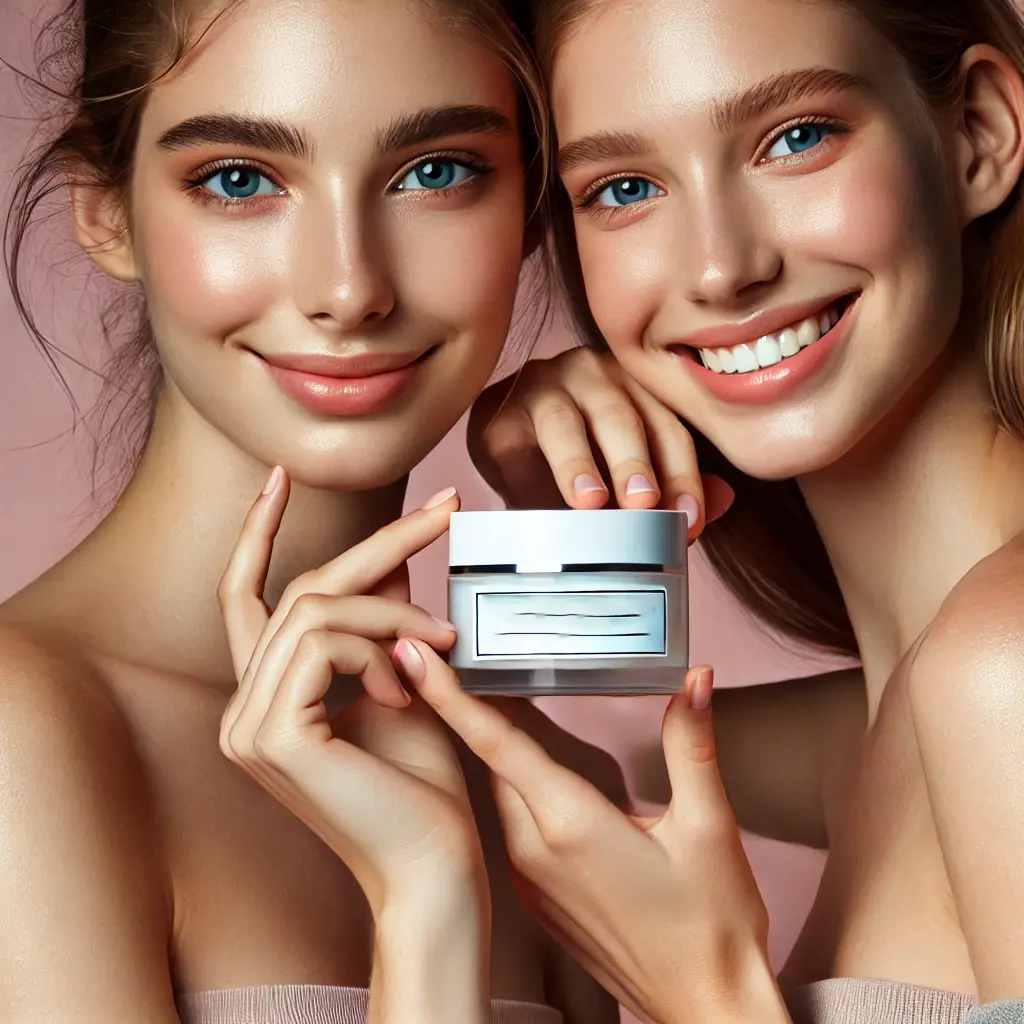If you’ve spent any time exploring skincare, you’ve probably come across two big buzzwords: hydration vs. moisture. They’re in product descriptions, beauty articles, and all over social media, but what do they actually mean? It’s easy to assume they’re the same thing since they both involve keeping skin healthy and nourished, but there’s a big difference. And understanding that difference can be the key to achieving a soft, dewy complexion that looks radiant and feels amazing.
So, let’s break it down: hydration is all about adding water to the skin cells to keep them plump and full, while moisture is about sealing that hydration in, preventing it from evaporating so your skin stays balanced and soft. Think of it this way—hydration is like filling up a sponge with water, making it expand and feel bouncy, while moisture is like coating that sponge to keep the water from drying up. Both are essential, and each plays a unique role in keeping your skin looking its best.
In this guide, we’ll dive into everything you need to know about hydration and moisture, why your skin craves both, and how you can tweak your skincare routine to deliver exactly what it needs. We’ll talk about the best hydrating and moisturizing ingredients, how to choose the right products for your skin type, and even debunk some common myths that can stand in the way of a balanced routine.
Ready to get your skincare on point? By the end of this article, you’ll understand why hydration and moisture are the ultimate skincare duo and how to make the most of each for your unique skin needs. Grab your favorite serum and moisturizer, and let’s get started on the journey to truly healthy, glowing skin!
Table of contents
Hydration vs. Moisture – What’s the Difference?
When it comes to skincare, you’ve likely heard about the importance of both hydration and moisture, but what exactly do these terms mean? While they’re often used interchangeably, hydration and moisture serve distinct purposes in keeping your skin healthy, glowing, and resilient. Here’s a breakdown to help you understand why your skin needs both and how to give it exactly what it craves.
The Science Behind Hydration
Our skin is naturally designed to retain moisture thanks to its outermost layer, the stratum corneum. This layer functions like a protective shield, holding a delicate balance of oils and water that keep our skin looking fresh and plump. But here’s where hydration comes in: hydrating ingredients are necessary to attract water to these cells and keep the skin replenished from within.
Enter humectants: These are water-attracting ingredients that pull moisture from the surrounding environment into the skin. The most popular humectant in skincare today is hyaluronic acid, which can hold up to 1,000 times its weight in water. Imagine the difference between a dry sponge and one that’s fully soaked with water—that’s what a hydrating ingredient does for your skin.
Key Ingredients for Hydration
- Hyaluronic Acid: A hydration powerhouse, it holds water within the skin cells, creating a plump and dewy look.
- Glycerin: Another effective humectant, glycerin pulls water into the skin, enhancing its softness and elasticity.
- Aloe Vera: Known for its soothing and hydrating properties, aloe vera helps to cool and hydrate the skin, making it great for sensitive or sun-exposed skin.
These ingredients are especially helpful if your skin often feels tight, looks dull, or appears rough, as they restore lost water and help the skin retain it, giving it that refreshed, bouncy look.
What is Moisture?
While hydration focuses on the water content inside skin cells, moisture is all about locking in that hydration by forming a barrier on the skin’s surface. This barrier prevents the water from evaporating, keeping your skin soft, smooth, and supple. Moisturizers contain emollients and occlusives—ingredients that form a protective seal over the skin, preventing what’s known as transepidermal water loss (TEWL), or the natural evaporation of moisture from your skin.
How Moisture Works
Moisturizers work to support the skin’s natural lipid barrier, which is key to preventing dryness and maintaining a balanced complexion. If you think of hydration as filling a cup with water, moisture is the lid that keeps the water from spilling out. Without a moisturizer, even the most hydrated skin can quickly lose water and end up feeling dry and rough.
Moisturizers also contain oils that help to smooth and soften the skin, filling in the spaces between skin cells to make it feel soft and appear more even. This “sealing” process not only keeps water in but also helps to keep environmental irritants out, making it especially important for people with dry or sensitive skin.
Key Ingredients for Moisture
- Shea Butter: A rich, natural emollient, shea butter is excellent for locking in hydration and softening the skin, making it ideal for dry areas.
- Squalane: This lightweight oil mimics your skin’s natural oils and is great for sealing in moisture without feeling greasy.
- Ceramides: These are lipids (or fats) that naturally occur in the skin and are crucial for maintaining a healthy skin barrier. They help trap hydration and prevent water loss, making them essential for anyone with dry or sensitive skin.

Why Your Skin Needs Both Hydration and Moisture
Benefits of Hydration for the Skin
- Plumper Skin: Hydration fills up skin cells, which can minimize the appearance of fine lines and give skin a plump, youthful look.
- Improved Elasticity: Hydrated skin is more elastic, which can slow the signs of aging and prevent wrinkles from becoming permanent.
- Enhanced Barrier Function: Hydrated skin has a stronger barrier, helping to fend off environmental irritants.
Benefits of Moisture for the Skin
- Long-lasting Softness: Moisture keeps skin feeling soft and supple, reducing flakiness and rough patches.
- Reduced Water Loss: By sealing in hydration, moisture prevents water from escaping, ensuring skin remains balanced and healthy.
- Barrier Repair and Protection: Moisturizers are crucial for maintaining a resilient skin barrier, especially for dry or sensitive skin types.
Common Misconceptions About Hydration and Moisture
Understanding the difference between hydration and moisture can be tricky. Many people think they’re the same thing or believe their skin only needs one. Let’s clear up some common myths so you can build a balanced, effective skincare routine that keeps your skin healthy and glowing.
Do You Really Need Both Hydration and Moisture?
Yes, you do! Hydration and moisture work together to keep your skin balanced. Hydration is all about supplying water to skin cells, making them plump and resilient. Moisture, on the other hand, is about locking in that hydration with ingredients that prevent water from evaporating. If you rely on hydration alone, your skin may still feel dry and tight because the water can escape without a protective barrier. Combining both gives your skin a complete care routine that covers all its needs.
Can Hydrating Products Replace Moisturizers?
Not quite. Hydrating products are usually packed with humectants, like hyaluronic acid and glycerin, that pull water into the skin. While these are fantastic for a quick hydration boost, they lack the occlusive ingredients, like oils and butters, that seal in that water. Think of it like this: hydrating products add water, but without a moisturizer, that water will simply evaporate, leaving your skin feeling dry again. Moisturizers with emollients or occlusives help keep that hydration locked in, allowing your skin to stay soft and smooth.
Does Oily Skin Still Need Hydration?
Absolutely! There’s a big difference between oil and water in the skin. Even if your skin produces plenty of oil, it can still lack hydration, meaning it’s low on water content. When oily skin gets dehydrated, it often overcompensates by producing even more oil, which can lead to a greasy feel and potentially more breakouts. By using hydrating products, you’re giving your skin the water it needs without adding extra oil, which helps balance your skin’s natural oil production.
Quick Tips to Balance Hydration and Moisture in Your Routine
Don’t Skip Moisturizer for Hydration: Even if your serum feels hydrating, always lock it in with a moisturizer to ensure you’re getting the most out of your routine.
Layer Your Products: Start with a hydrating serum, then follow up with a moisturizer that suits your skin type. This combo helps draw in water and keeps it sealed.
Choose Lightweight Options for Oily Skin: For oily or combination skin, look for gel-based or water-based hydrating serums, then finish with a lightweight, non-comedogenic moisturizer.

Building a Routine with Hydration and Moisture
Creating a balanced skincare routine that includes both hydration and moisture is essential to keep your skin looking its best. Each step in your routine should work to give your skin the water it needs and then lock it in to prevent moisture loss. Here’s how to build a simple, effective routine that ensures your skin stays hydrated and moisturized.
Step-by-Step Routine for Hydrated, Moisturized Skin
- Cleanse: Start with a gentle, non-stripping cleanser. This helps remove dirt and oil without disrupting your skin’s natural moisture balance. Look for cleansers labeled as “hydrating” or “gentle” since they’re usually formulated to clean without leaving skin feeling tight or dry.
- Hydrate: After cleansing, apply a hydrating serum that contains humectants like hyaluronic acid or glycerin. Humectants work by drawing moisture from the air into your skin, making it look plump and fresh. Hyaluronic acid is a superstar here, as it holds up to 1,000 times its weight in water, so it’s perfect for giving your skin that hydration boost.
- Moisturize: Next, use a moisturizer rich in emollients and occlusives to seal in all the hydration. Emollients soften the skin, while occlusives create a barrier on the skin’s surface to lock in moisture and prevent water loss. Moisturizers with ingredients like ceramides, shea butter, or squalane are excellent choices for this step.
- Protect: Finish with sunscreen if you’re heading out during the day. Sunscreen is crucial for protecting the skin barrier from damage caused by UV rays, which can lead to dryness, dehydration, and premature aging. Opt for an SPF of at least 30, and look for “broad-spectrum” to ensure it protects against both UVA and UVB rays.
Best Hydrating Ingredients to Look For
When choosing products for hydration, focus on humectants, as they attract water to the skin. Here are some of the best:
- Hyaluronic Acid: Known for its ability to hold massive amounts of water, hyaluronic acid is a top choice for deep hydration. It’s lightweight and works for all skin types, making it easy to incorporate into your routine.
- Glycerin: This classic humectant pulls moisture into the skin from the environment, keeping it hydrated throughout the day. Glycerin is often found in cleansers, serums, and even moisturizers.
- Aloe Vera: Besides its hydrating properties, aloe vera is soothing, making it ideal for sensitive or irritated skin. It’s often used in toners, masks, and even gel-based moisturizers.
Best Moisturizing Ingredients to Look For
For moisture, look for emollients and occlusives that help lock in hydration and reinforce your skin’s barrier:
- Ceramides: Ceramides are lipids naturally found in the skin that help keep it smooth and prevent moisture loss. Products with ceramides are especially great for dry or sensitive skin types, as they support the skin barrier.
- Shea Butter: A rich, natural emollient, shea butter softens the skin and provides a protective layer to lock in moisture. It’s excellent for dry and combination skin types needing extra moisture.
- Squalane: This lightweight oil mimics your skin’s natural lipids, making it an ideal moisturizer. Squalane doesn’t feel heavy on the skin, so it’s great for all skin types, even oily skin.

Hydration vs. Moisture for Different Skin Types
Different skin types have unique needs when it comes to hydration and moisture. Here’s how to tailor your routine based on your skin type:
Hydration vs. Moisture for Dry Skin
Dry skin typically lacks both water and oil, so it’s essential to use both hydrating and moisturizing products to keep your skin soft and prevent that tight, dry feeling. Start with a hydrating serum, then follow up with a rich cream or balm that includes nourishing ingredients to lock in moisture.
Recommended Products:
- Moisturizer: CeraVe Moisturizing Cream – Enriched with ceramides and hyaluronic acid, this cream restores the skin’s barrier and locks in moisture, making it ideal for dry skin.
- Hydrating Serum: The Ordinary Hyaluronic Acid 2% + B5 – This serum combines hyaluronic acid and vitamin B5 to attract and retain moisture, providing deep hydration.
Hydration vs. Moisture for Oily Skin
Oily skin still needs hydration, but a lightweight approach is best. Opt for hydrating gels or serums that contain hyaluronic acid to add water without heaviness. Finish with a non-comedogenic moisturizer to lightly seal in hydration without causing excess shine.
Recommended Products:
- Moisturizer: La Roche-Posay Effaclar Mat Moisturizer – This oil-free moisturizer mattifies the skin while delivering essential moisture, making it perfect for oily skin types.
- Hydrating Gel: Neutrogena Hydro Boost Water Gel – A water-based gel with hyaluronic acid that provides hydration without feeling greasy or heavy.
Hydration vs. Moisture for Combination Skin
Combination skin often needs hydration all over, with extra moisture focused on drier areas like the cheeks. Use gel-based hydrating products and lightweight moisturizers to keep the skin balanced without causing breakouts in oilier areas.
Recommended Products:
- Moisturizer: Clinique Dramatically Different Hydrating Jelly – An oil-free, water-jelly moisturizer that provides hydration and balances both oily and dry areas of the skin.
- Hydrating Serum: Vichy Mineral 89 Hyaluronic Acid Serum – This lightweight serum strengthens and hydrates the skin barrier, making it ideal for all areas of combination skin.
Hydration vs. Moisture for Sensitive Skin
Sensitive skin needs both hydration and moisture, but it’s essential to avoid products with harsh chemicals, added fragrances, or alcohol. Look for calming ingredients like aloe vera and ceramides that hydrate and strengthen the skin barrier without irritation.
Recommended Products:
- Moisturizer: Cetaphil Daily Hydrating Lotion – This lightweight, fragrance-free moisturizer with hyaluronic acid provides gentle hydration for sensitive skin without causing irritation.
- Hydrating Serum: Avène Hydrance Intense Rehydrating Serum – A soothing, fragrance-free serum that delivers long-lasting hydration, perfect for sensitive skin.
Hydrating and Moisturizing Products to Try
Finding the right products to keep your skin hydrated and moisturized is key to achieving a balanced, healthy complexion. Here’s a list of top-rated products that deliver excellent hydration and moisture for all skin types—from lightweight gels that provide an instant boost to rich creams that lock in moisture for hours. Let’s dive into some popular options that can give your skin the care it deserves.
Best Hydrating Products for All Skin Types
- Neutrogena Hydro Boost Water Gel: A drugstore favorite, packed with hyaluronic acid, perfect for adding hydration without feeling greasy.
- The Ordinary Hyaluronic Acid 2% + B5: A budget-friendly, highly-rated serum that boosts hydration and improves skin texture.
Best Moisturizers for Locking in Hydration
- CeraVe Moisturizing Cream: Contains ceramides to strengthen the skin barrier and prevent moisture loss, ideal for dry and sensitive skin.
- First Aid Beauty Ultra Repair Cream: A rich, soothing cream with colloidal oatmeal, perfect for dry, compromised skin barriers.
Conclusion: The Perfect Balance of Hydration vs. Moisture for Your Skin’s Health
By now, you can see that hydration vs. moisture are the dynamic duo your skin needs to stay healthy, balanced, and radiant. Hydration brings water into your skin cells, plumping and revitalizing your complexion, while moisture helps seal that hydration in, keeping your skin soft, resilient, and protected. It’s not about choosing one over the other; instead, it’s about understanding how they work together to give you the best results.
When you combine hydration and moisture in your routine, you’re setting up your skin for long-term health and beauty. For hydrated skin, look for ingredients like hyaluronic acid and glycerin that attract water, and for moisturized skin, reach for emollients like squalane or shea butter that lock in that hydration. Tailoring your products to your specific skin type—whether it’s dry, oily, combination, or sensitive—ensures you get the right balance for your unique needs.
Remember, skincare is a journey, and it’s all about consistency. Small, steady steps like applying a hydrating serum followed by a moisturizer every day can make a huge difference over time. Give your skin the care it deserves by embracing both hydration and moisture, and you’ll start to see results that truly last.
Related Articles on BeautyStyleMag
- 7 Best DIY Face Masks for Hydration, Brightening, and Acne
- 10 Skincare Mistakes to Avoid for Healthier Skin
- What Are the Best Moisturizers for Oily Skin?
For more inspiration, check out reliable resources like lovelyskin.com and Healthline.com for expert advice.



